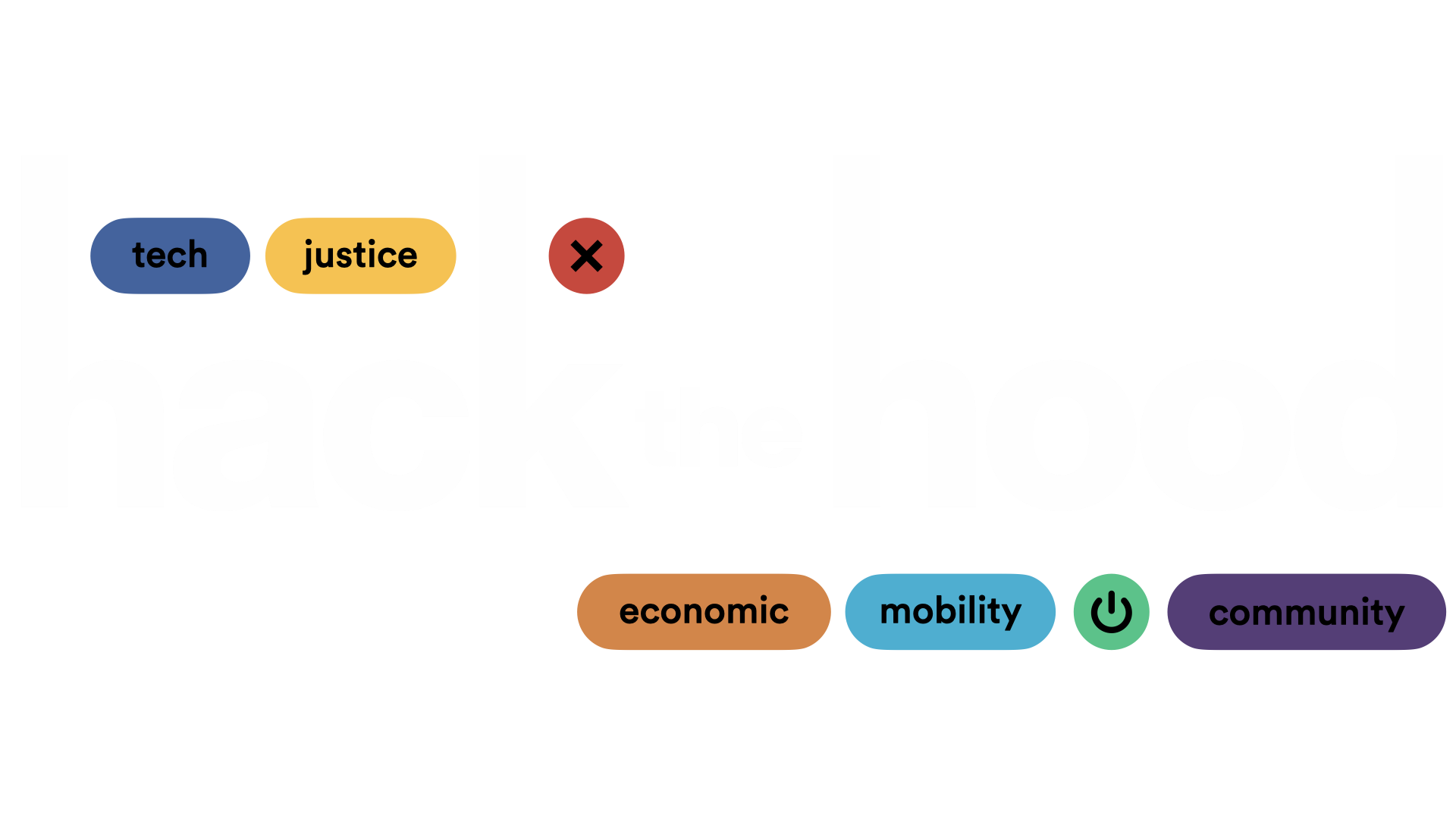Hack the Hood | Summer 2021 Impact Narrative
After over a year of uncertainty, the inability to convene in person and be in community, Hack the Hood pivoted and adapted to virtual learning, ensuring that we could continue to show up for our learners and provide them with the summer opportunities and resources they needed more than ever. During Summer 2021, Hack the Hood reached over 80 learners through three virtual tech education programs where laptops and DoorDash credits were provided. In a world where traditional summer programs and facilities were inaccessible to many youth, providing basic needs like devices and food became top priority to ensure learners can focus on being successful.
The four week programs piloted our new tech justice curriculum as well as a new tech curriculum centered around Python and Github basics. We evaluated these three programs using strengthened pre and post program surveys created in concert with our evaluation consultant ISKME. The survey data shows a strong impact on learners’ professional knowledge, skills, and confidence as a result of the program. Specifically, 60% of learners reported an increase in their communication skills and ability to speak with others about technology and 88% of learners reported an increase in their technical programming and coding skills. This was significant validation for us as this cohort was the first completing our new Python centered curriculum in a condensed, four-week time frame.
At the end of the program, learners were asked to create group presentations on what they learned and share them back with their peers and instructors, further reinforcing their learning while increasing their communication skills. In addition, we believe this data points to the effectiveness of our curriculum design, which is centered around making content relatable and engaging for Black, Latinx, Indigenous and AAPI learners. To give an example, our tech justice curriculum integrates discussions around how technology is used in police surveillance, issues of algorithmic bias, and data privacy in a way that engages learners in group discussions, contextualizing their technical learning. Indeed, 77% of learners reported an increased understanding of how to apply a social justice perspective to technology development.
Importantly, our impact on increased belonging in tech and in social capital was strong. 96% of learners reported an increased awareness of tech career opportunities, with an approximate 40% increase in awareness of career options and knowledge of next steps to take. Learners reported a 28% increase in their comfort talking to people who work in technology careers and a 32% increase in seeing themselves as members of the tech community. We believe that this is attributed to our decision to dedicate Friday sessions completely to mentorship and career exposure for these summer programs. We had 32 volunteers from companies such as Square, Celigo, Moodys, Intel, TapJoy, Autodesk, Everlane, Hack Reactor, Affirm, and ServiceNow dedicate 87 hours of their time to speaking to and mentoring our learners, driving these strong results. This demonstrates the impact and importance of engaging our community of tech partners and providing mentorship and networking for our learners.
While 60% of learners reported an interest in pursuing high demand, high wage jobs as a result of the program, our impact on increased interest in post secondary degrees was lower than expected. We only saw a 4% increase in learner plans to major in STEM areas. We hypothesize that this is likely because 70% of the learners in this cohort were high school students already enrolled in AP CS courses through our partnership with Oakland Public Education Fund and Intel. Their intent to enroll in post-secondary CS degrees was already quite high at 80% interest in tech based degrees. Our program, therefore, didn't have a marked impact on their existing desires. When we looked at increased interest in pursuing a college degree more generally, the data was stronger, showing a 56% increase in learner’s desire to pursue degrees outside of CS and a 75% increase in learners interests in continued education and training.
Though circumstances this summer were difficult for our learners and community alike, our number one priority was to keep our people safe. We’ve pivoted to new ways of delivering curriculum, provided basic needs support for our learners, debuted new and impactful technical curriculum and left a lasting impression on our young folks to see themselves in tech and use it to make positive changes in their lives and their greater community. One of our summer learners shared, “I feel inspired on my journey to use technology for good and addressing social justice issues because I learned that technology is advancing more every day and there are things that we can do to make technology better.”
We look forward to taking our summer learnings and providing impactful fall programs to another generation of future tech leaders!


